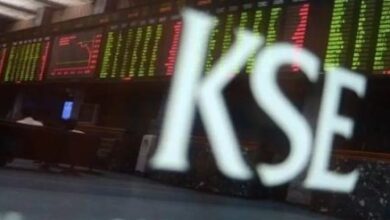Ahead of U.S. inflation statistics and central bank rate decisions, Asian equities tremble.

As investors awaited U.S. inflation statistics, which many believe would persuade the Federal Reserve and other central banks to scale down their aggressive interest rate hikes, Asian stock markets lost ground on Tuesday after opening higher.
The Nikkei 225 and Australian shares both increased in value at lunchtime, while MSCI’s largest index of Asia-Pacific equities outside of Japan increased by 0.10% and 0.35%, respectively. The KOSPI index in Seoul fell by 0.10%.
The Shanghai Composite Index and the CSI300 Index in China both declined by 0.33% and 0.21%, respectively, as concerns about a rise in COVID-19 infections as a result of the government’s decision to abandon its zero-COVID policy cast doubt on the future of the second-largest economy in the world.
Related: Asian stocks decline, and the dollar strengthens ahead of a central bank rate hike.
However, a measure related to the tourism industry increased by more than 2% when Hong Kong loosened COVID-19 travel regulations.
Investor attention was mostly focused on the United States’ inflation numbers, which were scheduled to be released at 1330 GMT on Tuesday. Core CPI inflation is predicted to fall from 6.3% to 6.1% and headline inflation to 7.3%.
Despite expecting a significant drop in inflation in 2023, Treasury Secretary Janet Yellen struck a cautious tone on Sunday by stating that the U.S. economy was still susceptible to shocks.
Instead of the aggressive 75 basis point hikes they adopted earlier in the year, the Fed, European Central Bank, and Bank of England are all anticipated to raise rates by 50 basis points (bps) later this week.
Given the FOMC’s close proximity, Deutsche Bank (ETR:DBKGn) stated in a research note that the U.S. CPI data “certainly has the power to affect the tone of the message… but is highly unlikely to change the headline 50-bps raise.”
The dollar index, which gauges the value of the dollar in relation to six important currencies, was unchanged at 105.01.
Related: Next year, the Taiwan central bank will implement “appropriate” monetary policy.
Due to supply concerns, oil prices increased again on Tuesday. Brent crude futures were up 1.17% at $78.90 a barrel, and U.S. West Texas Intermediate crude was up 1.15% at $73.99 a barrel.
While U.S. gold futures were up 0.01% at $1,792.5, spot gold was essentially unchanged at $1,781.50 per ounce.





